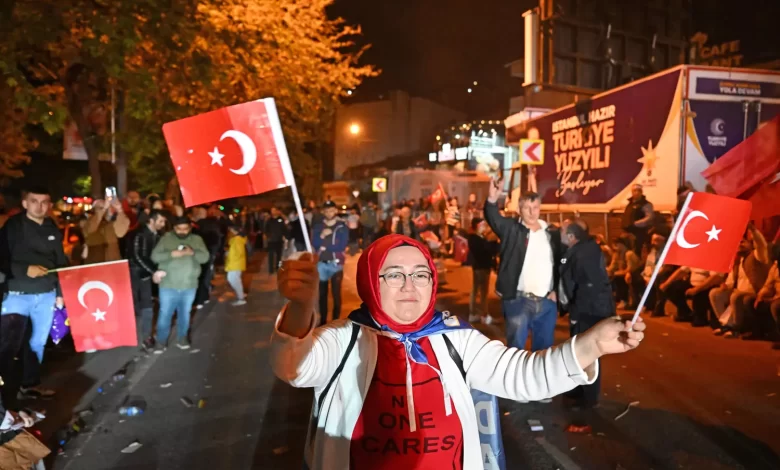Results of Turkish elections dash hopes for economic recovery

Investors’ hopes for a recovery in Turkish markets were dashed Monday after Recep Tayyip Erdogan’s strong performance in the first round of Sunday’s presidential election, despite passing a second round that will be crucial to the country’s future, especially in economic terms.
Erdogan, a long-time power broker prone to confrontation, fared better than expected in the second round on May 28, giving him a comfortable lead in the run-off and muting talk of an end to years of record-breaking inflation and recurring currency crises.
Commenting on the chances of victory for Erdogan’s rival Kılıçdaroğlu, and thus a serious change in economic policies, Kieran Kurtis, head of emerging market local currency debt, said “Hope is dead.”
Supporters of third-place nationalist candidate Sinan Ogan are very likely to switch to support Erdogan in the runoff, which “means Erdogan will come back,” he said.
“We’re back, which means foreign reserves will continue to decline until we have a set of sensible economic policies,” Curtis said.
Others see a positive side, however, as the election results and potential civil unrest are unlikely to be called into question. But the big question now concerns the fate of the increasingly unconventional economic policies of the Erdoğan era.
The market’s initial reaction to the election results was violent yesterday (Monday). The Turkish lira fell to its lowest level in two months, while the fall was even worse in hard currency bank and government bond issues.
Analysts say the lira is now tightly managed, having lost around 95% of its value against the dollar over the past 15 years, while international fund managers have been selling lira-denominated bonds and reducing their equity holdings.
“The next five years are likely to be very difficult for Turkey,” said Omotund Lawal, head of emerging-market corporate debt at Barings, citing divisions within the community and the risk of further volatility in the lira.
“There is a risk that the government will resort to measures such as restricting foreign currency transactions of individuals or companies when they are trying to control the exchange rate,” which will make it more difficult for companies, she said.
Banks
JPMorgan analysts said that assuming Erdogan wins, Turkish fiscal policy will remain expansionist as he fulfills his promises to spend on his campaign to increase income and rebuild the country after the February earthquake.
The Central Bank of Turkey predicted that the Turkish currency would depreciate to 30 pounds against the dollar unless there is a clear shift towards conventional policies. However, its analysts pointed out that the futures market witnessed sharp movements yesterday, Monday.
With inflation still above 40 percent, Turkish interest rates were expected to rise from 30 to 40 percent, or even 50 percent of their current level of 8.5 percent, if the opposition coalition wins. But that’s no longer the case.
JPMorgan said, “Continued policies will limit foreign exchange volatility,” as Erdogan’s economic team seeks to minimize changes and foreign currency volatility.
Although the summer holiday often relieves pressure on the lira when tourists bring in euros, dollars and pounds, Rob Dreekwoningen, co-chair of emerging market debt at Neuberger Berman, said the question is what will happen in the long run.
If the Turks begin to withdraw money, especially dollar savings, banks may again jeopardize the government’s ability to repay debt, but this will represent a significant loss of control.
While Turkey’s borrowing is increasing, it still has a relatively low level of debt as a percentage of GDP, although this will change quickly in the event of a full-fledged crisis.
“We have been seeing this situation for two years … That’s the truth,” Dreekningen said, “and no one has a good idea of what would lead to a real crisis.”












